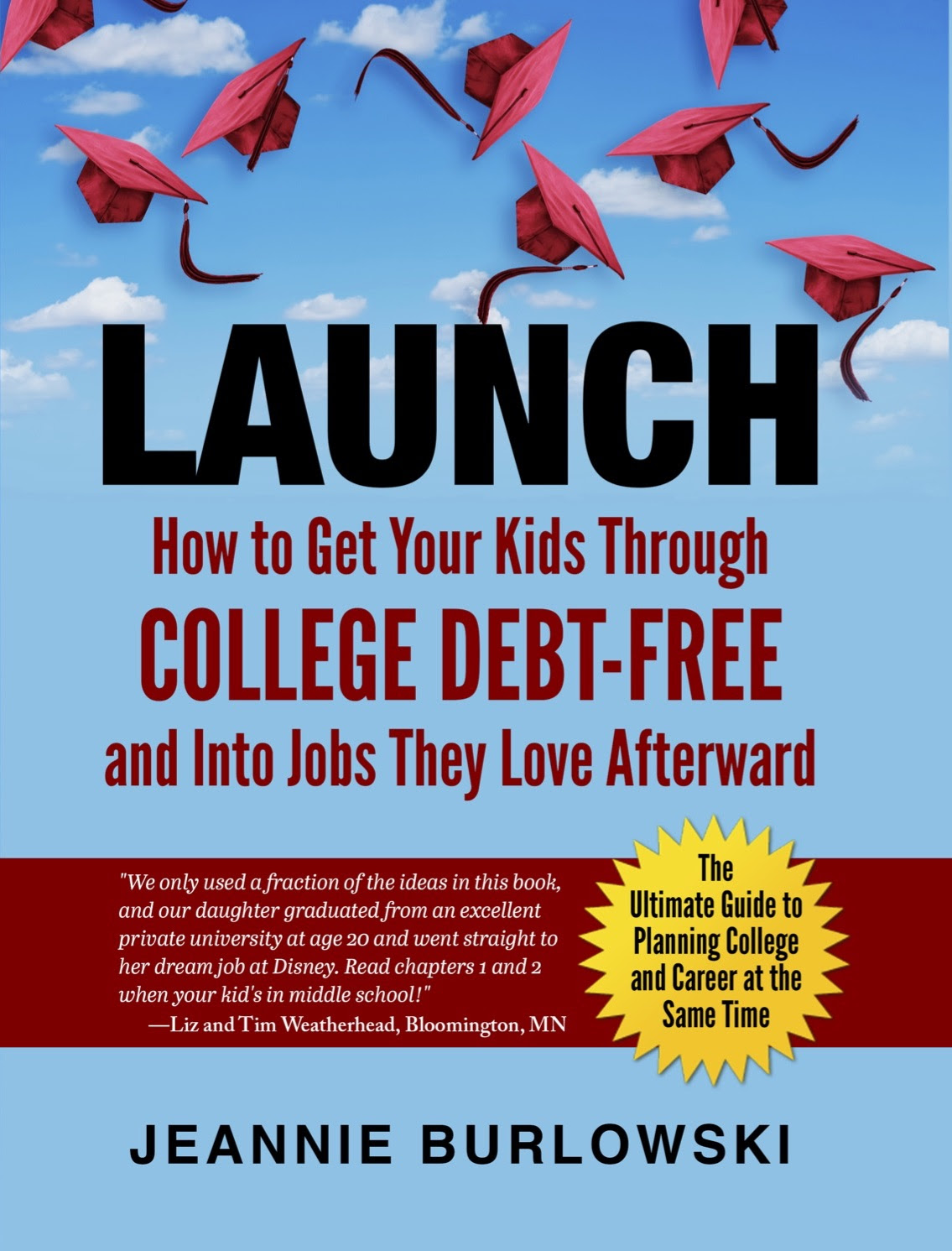
From the time students are in middle school, they’re told the big lie.
That colleges and grad schools are looking for students who are “well-rounded.”
“Don’t commit too deeply to any one thing,” well-meaning parents and college counselors tell students. “Instead, do a lot of different things. Do as many as you can! Cram your schedule full to bursting! Exhaust yourself! Colleges and grad schools will like how ‘well-rounded’ you are.”
Here are 5 reasons why the “well-rounded” myth makes no sense.
1. Millions of students fall into the “well-rounded” category. It’s nothing special.
Does any thinking person really believe that colleges and grad schools are struggling to find enough insanely busy, perennially exhausted students who run themselves ragged for four years doing a little bit of everything?
Do you have any idea how many students in the United States fall into this category?
Hyper-busy, exhausted kids, desperately packing their résumés with hundreds of activities they don’t care about, in futile attempts to impress people they’re never going to actually meet?
U.S. colleges and universities can pack their freshman classes a hundred times over with students like these. Exhausted, overcommitted students are ordinary. They’re unremarkable. They’re run-of-the-mill. Their college applications are yawners. Here’s the truth: it’s the student who’s taken at least one thing and gone after it with depth and passion and commitment who’s going to stand out from the crowd like a superstar and impress everyone.
2. T-shaped makes far more sense.
The “T-shaped’ student tries different things with the goal of finding one area of highly interested focus.
Once she has it, she dives deeply into that area of focus (academically and in outside-of-school activities) over a period of years.
Read what author Jeffrey J. Selinga says about this subject in this Washington Post article. “The problem with well-rounded students,” Selinga says, “is that they usually don’t focus on any one thing for a prolonged period of time. Too often they seem to participate in activities just to check off a series of boxes, instead of showing the deep and sustained involvement . . . and dedication that employers seek. Their résumés are filled with what some recruiters refer to as ‘sign-up clubs.'”
Selinga is talking about college students, but the idea applies to high school students as well.
3. The crossbar on the “T” is key.
The crossbar on the “T” comes when your daughter works at gaining breadth across a variety of academic disciplines.
If she loves the idea of computer programming, for instance, imagine her digging deep into that subject and learning as much as she can about it both in and out of school. Then imagine her adding to her programming education additional college coursework in subjects such as math, law, psychology, and finance. There are many, many jobs that could use this combination of deep skill and academic breadth. Working for a company that detects credit card fraud is just one that comes to mind.
4. Remember, exhaustion and burnout are not the route to future career success.
You can see the article I’ve written on this subject here.
Exhausted students who’ve been run ragged in every club, extracurricular activity, and sport can build up layers of anxiety, causing problems with both future college admissions and applying for and getting jobs after college.
5. Easing up is OK. Really.
Even the Harvard admissions office told the New York Times that the students it’s seeing “seem like dazed survivors of some bewildering lifelong boot camp.” Ease up. Please.
One of the most joyful parts of parenting is knowing—you’ve set your kid up for successful college and career life.
For clear, step-by-step help getting your kids through college debt-free and into careers they love afterward, get your copy of my book:
Important—> It’s a reference book, so nobody reads the whole thing cover to cover. Pick out what you need to read in it using the fast-paced, 10-minute video instructions here.
You can see hundreds of reviews of this book on Amazon by going to:
Read just one chapter of LAUNCH every 1–3 months while your child’s in middle school and high school, and you’ll know every viable strategy for debt-free college at exactly the right time to implement it.
And if your child’s already well past middle school? That’s OK; you can run to catch up. But the process of getting your kids through college debt-free goes more smoothly the earlier you start—especially if you’re not planning to save up any money to pay for college.
Let's you and I walk together toward the goal of debt-free college for your kids.
We can accomplish this no matter your current income level—even if your kids never get a single scholarship.
Your first step is getting regularly scheduled, free helpful articles from me—right in your email inbox. Quick, sign up here.
Do you have very specific questions for me about debt-free college and career for your kids?
My TRIBE Members get the most direct access to me—while feeling good that the pennies per day they spend on the TRIBE help me bring debt-free college strategy to families who could never afford to pay for it. Join my TRIBE Membership waiting list here. (The parent testimonials you'll see there are so encouraging!)
Who is Jeannie Burlowski?
Jeannie is a full-time academic strategist, podcast host, and sought-after speaker for students ages 12–26, their parents, and the professionals who serve them. Her writing, speaking, and podcasting help parents set their kids up to graduate college debt-free, ready to jump directly into careers they excel at and love. Her work has been featured in publications such as The Huffington Post, USA Today, Parents Magazine, and US News & World Report, as well as on CBS News.
Jeannie also helps students apply to law, medical, business, and grad school at her website GetIntoMedSchool.com. You can follow her on Bluesky @jburlowski.bsky.social.
No part of this article was written using AI.
This article was updated on January 30th, 2024.


